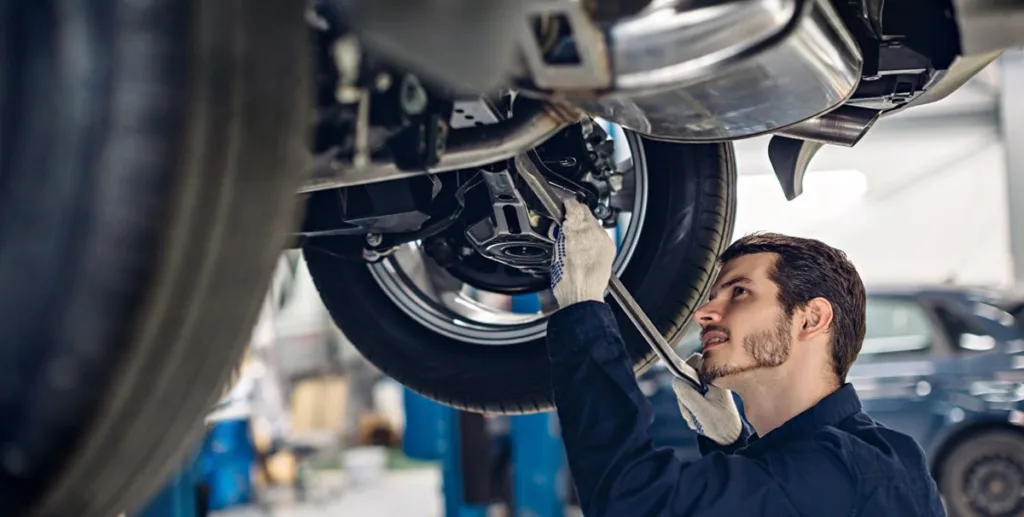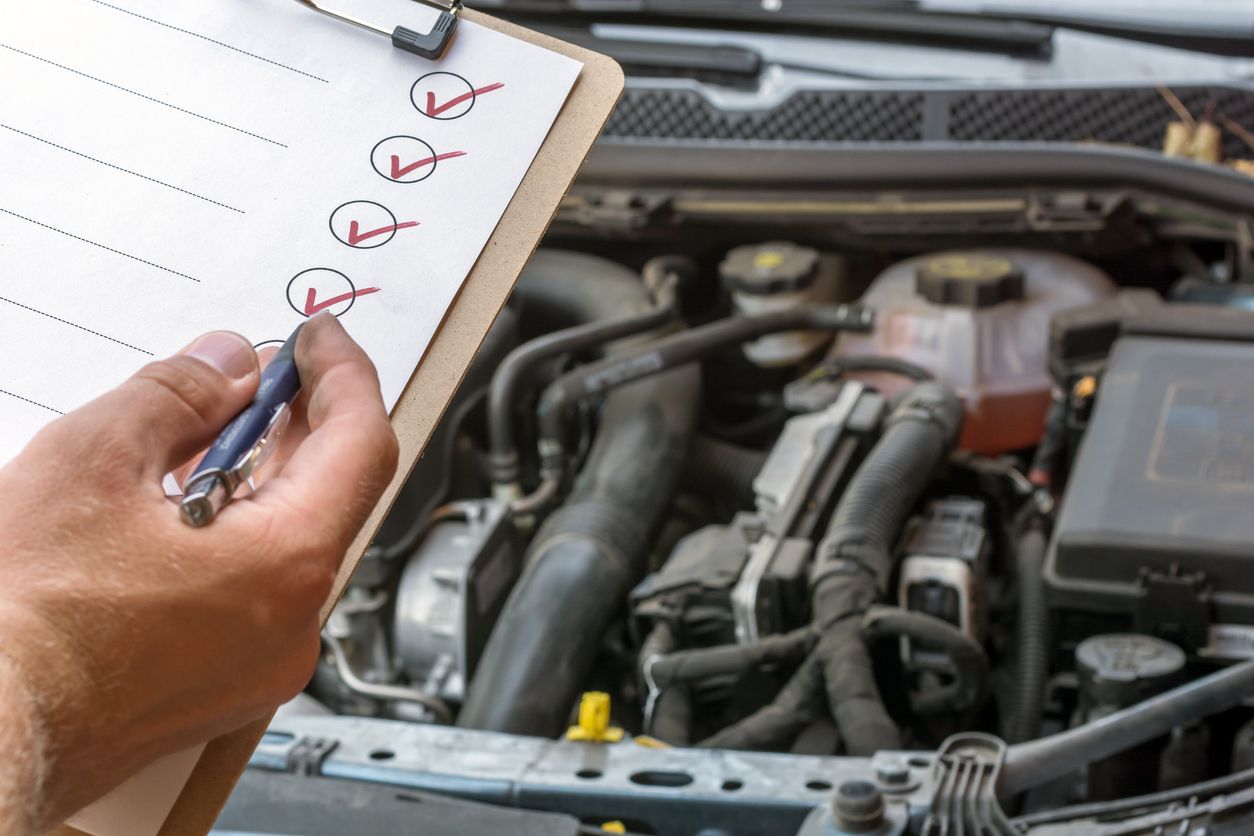All Categories
Featured
The timing belt is a crucial component of your engine, liable for synchronizing the activity of various engine components, such as the crankshaft and camshaft. While the timing belt may not be something you assume around frequently, neglecting its maintenance can lead to considerable engine damage and costly fixings.
What Is a Timing Belt and Just How Does It Work? The timing belt is a rubber or composite product belt that connects the crankshaft to the camshaft in an internal burning engine. The camshaft controls the opening and closing of the engine's intake and exhaust shutoffs, and it should be timed perfectly with the activity of the pistons in the engine. The timing belt ensures that these components remain in sync, enabling the engine to run smoothly.
If the timing belt falls short or ends up being used out, the camshaft and crankshaft will certainly no longer be synchronized, which can trigger the engine's valves to strike the pistons. This causes tragic engine damage and typically calls for expensive repair work and even an engine replacement.
Why Is Timing Belt Replacement Important? Gradually, the timing belt can use down as a result of rubbing, warmth, and basic engine wear. While it may appear like a small problem, a defective timing belt can lead to severe engine troubles. Right here's why prompt replacement is essential:
Avoiding Engine Damages: As discussed, a broken or slipping timing belt can cause the engine's pistons and valves to collide. This causes bent shutoffs, damaged pistons, and in severe cases, a total engine failing. Changing the timing belt prior to it damages can avoid this pricey damages.
Maintaining Engine Effectiveness: A worn-out timing belt can interrupt the synchronization of the engine components, reducing general engine performance. Replacing the belt helps keep optimal engine feature, guaranteeing smooth operation, improved fuel effectiveness, and better performance.
Preventing Unanticipated Failure: A broken timing belt can leave you stranded on the side of the road, creating a significant trouble. By replacing the timing belt at the suggested periods, you can avoid the threat of an unforeseen malfunction, particularly in the middle of a lengthy trip or when you least anticipate it.
![]()
Saving Cash over time: While timing belt substitute can appear like an expenditure you could want to avoid, it's more affordable than the price of repairing or replacing a damaged engine. The replacement expense is fairly economical contrasted to the substantial repairs called for if the timing belt breaks. Proactive upkeep can save you hundreds of dollars out of commission and protect your automobile's value.
When Should You Replace the Timing Belt? The timing belt substitute timetable can vary depending upon your automobile's make and design. As a whole, many manufacturers recommend replacing the timing belt every 60,000 to 100,000 miles. It's always best to consult your proprietor's manual or a relied on technician for particular suggestions for your lorry.
Indications that your timing belt may require replacement consist of uncommon engine sounds such as grumbling or ticking, difficulty beginning the engine, or a recognizable decline in engine efficiency. If you experience any one of these signs and symptoms, it is essential to have the timing belt checked promptly.
![]()
Final thought. Replacing the timing belt at the advised periods is a crucial component of keeping your engine's wellness and making sure that your automobile runs smoothly. A broken timing belt can lead to pricey fixings, engine failure, and unexpected breakdowns, which can be prevented with correct maintenance.
What Is a Timing Belt and Just How Does It Work? The timing belt is a rubber or composite product belt that connects the crankshaft to the camshaft in an internal burning engine. The camshaft controls the opening and closing of the engine's intake and exhaust shutoffs, and it should be timed perfectly with the activity of the pistons in the engine. The timing belt ensures that these components remain in sync, enabling the engine to run smoothly.
If the timing belt falls short or ends up being used out, the camshaft and crankshaft will certainly no longer be synchronized, which can trigger the engine's valves to strike the pistons. This causes tragic engine damage and typically calls for expensive repair work and even an engine replacement.
Why Is Timing Belt Replacement Important? Gradually, the timing belt can use down as a result of rubbing, warmth, and basic engine wear. While it may appear like a small problem, a defective timing belt can lead to severe engine troubles. Right here's why prompt replacement is essential:
Avoiding Engine Damages: As discussed, a broken or slipping timing belt can cause the engine's pistons and valves to collide. This causes bent shutoffs, damaged pistons, and in severe cases, a total engine failing. Changing the timing belt prior to it damages can avoid this pricey damages.
Maintaining Engine Effectiveness: A worn-out timing belt can interrupt the synchronization of the engine components, reducing general engine performance. Replacing the belt helps keep optimal engine feature, guaranteeing smooth operation, improved fuel effectiveness, and better performance.
Preventing Unanticipated Failure: A broken timing belt can leave you stranded on the side of the road, creating a significant trouble. By replacing the timing belt at the suggested periods, you can avoid the threat of an unforeseen malfunction, particularly in the middle of a lengthy trip or when you least anticipate it.

Saving Cash over time: While timing belt substitute can appear like an expenditure you could want to avoid, it's more affordable than the price of repairing or replacing a damaged engine. The replacement expense is fairly economical contrasted to the substantial repairs called for if the timing belt breaks. Proactive upkeep can save you hundreds of dollars out of commission and protect your automobile's value.
When Should You Replace the Timing Belt? The timing belt substitute timetable can vary depending upon your automobile's make and design. As a whole, many manufacturers recommend replacing the timing belt every 60,000 to 100,000 miles. It's always best to consult your proprietor's manual or a relied on technician for particular suggestions for your lorry.
Indications that your timing belt may require replacement consist of uncommon engine sounds such as grumbling or ticking, difficulty beginning the engine, or a recognizable decline in engine efficiency. If you experience any one of these signs and symptoms, it is essential to have the timing belt checked promptly.

Final thought. Replacing the timing belt at the advised periods is a crucial component of keeping your engine's wellness and making sure that your automobile runs smoothly. A broken timing belt can lead to pricey fixings, engine failure, and unexpected breakdowns, which can be prevented with correct maintenance.
Latest Posts
Uncover the Best Auto Repair Deals in Montclare, Chicago
Published May 29, 25
1 min read
Explore Brake Repair & More: Complete Services Guide from Montclare Auto Repair
Published May 24, 25
1 min read
Explore Exclusive Auto Repair Offers in Chicago at Montclare Auto Repair
Published May 22, 25
1 min read